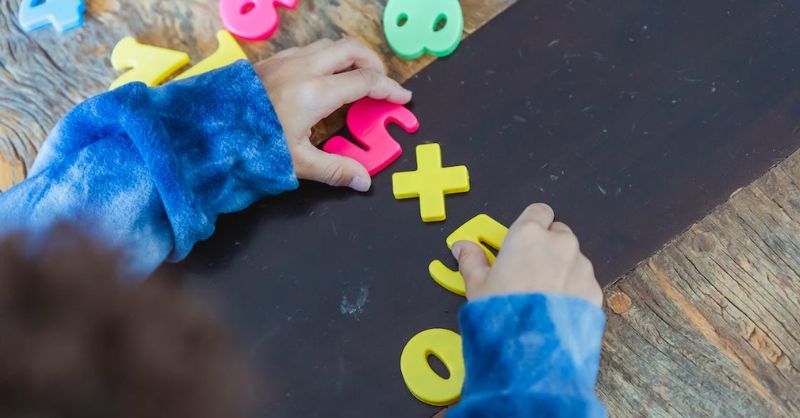
Mathematics is a subject that often intimidates both children and adults alike. However, it doesn’t have to be that way. With the right approach and a dash of creativity, you can make math lessons an enjoyable and engaging experience for kids. In this article, we’ll explore some effective strategies to kickstart math lessons with children, helping them develop a strong foundation in mathematics while having fun along the way.
Set the Stage for Success
Before diving into math lessons, it’s essential to create a positive and supportive learning environment. As you prepare materials, from the basic telling time worksheets to more specific skill practicing sheets, consider the environment in which your kid will be learning. Here are some tips to set the stage for successful mathematics lessons with kids:
- Create a Math-Friendly Space: Designate a specific area in your home or classroom for math lessons. This space should be well-lit, organized, and free from distractions. Having a dedicated math corner can help children focus and associate the area with learning.
- Gather Supplies: Ensure you have all the necessary math supplies readily available. This includes pencils, erasers, rulers, paper, workbooks, and any other materials you may need for the day’s lesson. Having everything prepared in advance saves time and keeps the momentum going.
- Maintain a Positive Attitude: Children pick up on your attitude, so it’s crucial to approach mathematics lessons with enthusiasm and optimism. Encourage a growth mindset, emphasizing that everyone can improve their math skills with practice and effort.
- Set Realistic Goals: Define achievable goals for each lesson. Break down complex concepts into smaller, manageable steps. Celebrate small victories along the way to boost your child’s confidence and motivation.
Engage and Excite
Once you’ve created the right environment, it’s time to engage and excite children about mathematics. Here are some creative ways to make your lessons more enjoyable:
- Incorporate Games: Mathematics games are a fantastic way to make learning fun. Board games like “Monopoly” and “Chess” involve skills like counting, strategy, and problem-solving. There are also numerous mathematics-specific games and apps designed for kids that can turn math practice into an exciting adventure.
- Use Real-Life Examples: Connect mathematics to real-life situations to demonstrate its practicality. For instance, when grocery shopping, involve your child in calculating prices, discounts, and budgeting. Cooking together can also incorporate the subject as you measure ingredients and follow recipes.
- Implement Storytelling: Turn math problems into engaging stories. Create characters and scenarios that require mathematical solutions. For example, “Sally has five apples, and she gives three to her friend. How many apples does she have left?” This approach helps children visualize and relate to mathematical problems.
- Explore Mathematics Through Art: Encourage creativity by combining the subject with art. Have children create geometric shapes or patterns using colored pencils, markers, or even playdough. This hands-on approach makes mathematical concepts tangible and visually appealing.
- Math in Nature: Take learning outdoors and explore mathematics in nature. Count leaves, rocks, or flowers, and discuss patterns in the environment. You can also measure distances, angles, and shapes in the natural world. This interactive approach makes the subject come alive for kids.
Conclusion: Essential Tips for Starting Math Lessons with Kids
Starting math lessons with kids can be a rewarding experience for both educators and students. By setting the right stage and using creative teaching methods, you can foster a love for math in children and help them build a strong foundation in this critical subject. To summarize, here’s a list of essential tips for starting mathematics lessons with kids:
- Create a designated and organized space for your lessons;
- Ensure you have all necessary supplies readily available;
- Maintain a positive attitude and encourage a growth mindset;
- Set achievable goals and celebrate small victories;
- Incorporate mathematical games and apps into your lessons;
- Connect math to real-life examples, such as shopping and cooking;
- Use storytelling to make mathematical problems relatable and engaging;
- Combine mathematics with art to stimulate creativity;
- Explore math concepts in the natural world through outdoor activities.
Remember that the key to successful math lessons lies in making learning enjoyable and relevant to the real world. With patience, enthusiasm, and these effective strategies, you can inspire young learners to embrace math with confidence and curiosity.
- All Courses
- Technology64
- Business269
- Language50
- Marketing127
- Photography22
- Software55
- Security Guard2
- Coaching5
- Maintenance Management23
- Bundle6
- Ex Deal54
- Business,Personal Development3
- Networking & Design6
- IT29
- Health & Safety91
- Cooking9
- Physical & Mental Health21
- Treatment9
- Photoshop3
- Child care23
- Parenting1
- Leadership & Management1
- Fast Track210
- Teaching & Education9
- International Relations2
- Philosophy1
- Office Skills2
- Health & Fitness2
- Health and Care17
- Law2
- Animal Care12
- Accounting & Finance6
- IT & Software4
- Management234
- Microsoft Office134
- Design68
- Travel and Tourism8
- Beauty20
- Accounting42
- Employability251
- Sports, Nutrition & Fitness200
- HR and Leadership58
- Personal Development479
- Autism2
- Customer Service6
- Nursing & Care82
- Lifestyle22
- Teacher Training28
- Project management3
- Mathematics7
- Counselling and Therapy52
- Psychology28
- Pharmacy5
- Animal1
- Development10
- Arts & Crafts19



